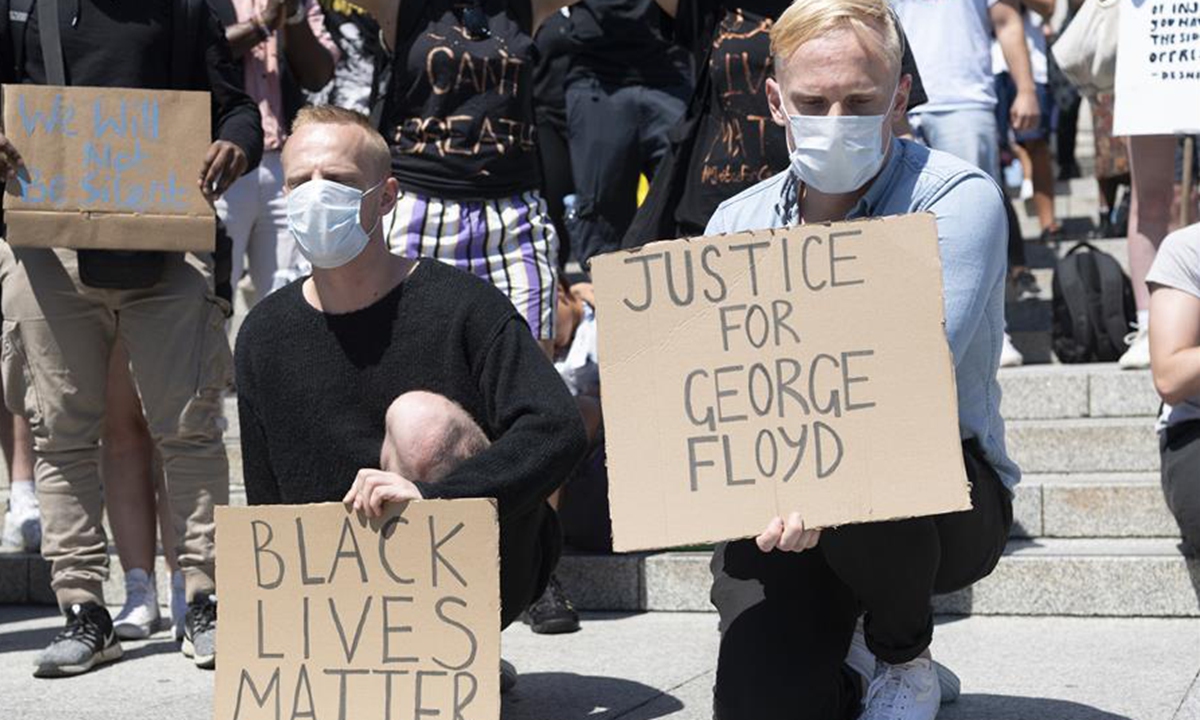Defying lockdown, Londoners rally outside US embassy for racial justice
Source:AFP Published: 2020/6/1 15:03:40

People take part in a protest over the death of George Floyd in London, Britain, on May 31, 2020. Despite the ban of mass gatherings in Britain, thousands of people gathered Sunday in London and Manchester to protest over the death of George Floyd, an unarmed black man suffocated to death by a white police officer in the mid-western U.S. state of Minnesota on Monday. (Xinhua)
Hundreds of Londoners defied coronavirus restrictions and rallied outside the US embassy on Sunday in solidarity with protests raging across the US over the death of an unarmed black man during an arrest.The death of George Floyd in Minnesota has sparked five consecutive nights of often violent protests that resulted in National Guard troops patrolling majority US cities on Sunday.
The London protesters chanted: "No justice, no peace" and "Enough is enough" as they marched towards the US embassy compound on the southern bank of the Thames River.
Shouting "Say his name! George Floyd!" they held up "Black Lives Matter" signs outside the embassy building.
Earlier, a few hundred had gathered in Trafalgar Square in the heart of London for a vigil that saw everyone kneel for nine minutes - the amount of time the policeman kneeled on Floyd's neck.
"When you take someone's life, the way that happened, then it does something to you wherever you are in the world - because it was totally wrong," one demonstrator called Trevor Joseph told AFP.
"It's a worldwide thing. It happens in America and we have to show solidarity," he added.
"I'm here because I'm tired, I'm fed up with it. When does this stop?" another protestor, Doreen Pierre, told AFP.
"What makes that okay in anybody's mind? Don't you have wives; don't you have children watching you do this? How is that okay?"
A protest march also took place in the northern English city of Manchester, at which local media said hundreds took part.
UK Foreign Secretary Dominic Raab called footage of the incident "very distressing."
But he refrained from commenting on US President Donald Trump's explosive tweets and controversial public statements about the protests.
"I've long kept to the self-imposed guidance not to comment on what President Trump says," Raab told the BBC.
AFP